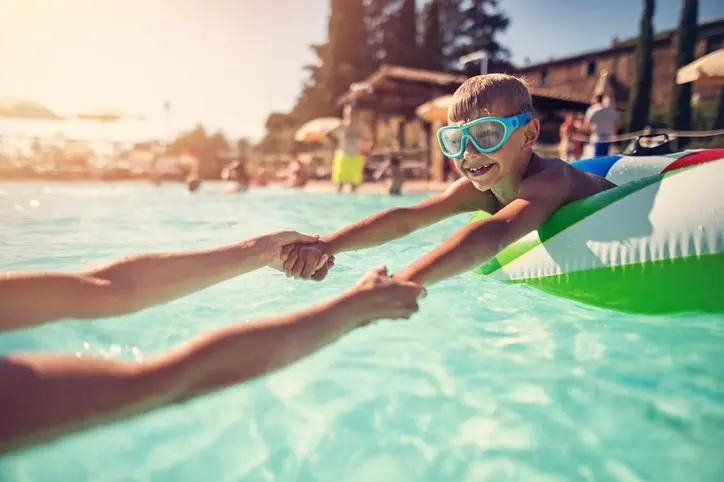PHOTO
More than 47 percent of children in Bahrain do not know how to swim, according to a nationwide survey.
The Water Safety Benchmarking Survey also exposed that 95pc of children do not currently learn swimming at primary schools.
Conducted by the Royal Life Saving Bahrain (RLSB), an organisation promoting water and swimming safety in Bahrain, the survey covered a representational sample of the population with 573 people taking part, 88pc of who were Bahrainis.
It also called for children to be taught swimming and basic water safety skills, with 73pc of participants stressing the need for swimming lessons to be compulsory at the primary school level.
According to RLSB statistics, which the GDN previously reported on, 16 drownings and four near-drownings were recorded in Bahrain last year, including at least seven children aged below 10.
So far this year three drownings and one near-drowning have been registered, with the latest being 14-year-old Ali Mohammed Abdulaziz who died near Karranah beach last Friday.
(14-year-old Ali Mohammed who drowned near Karranah beach while swimming last Friday)
“A population that can’t swim does not have the foundation for engaging in water-based activities,” said RLSB skills development executive Samira Al Bitar.
“Foundational knowledge in swimming and water safety is required to maximise economic and well-being opportunities around water.
“Often, the first responders to any emergency are members of the public who should have basic training to respond until emergency services arrive.
“In countries like Canada and Germany basic CPR and first aid are taught as the requirement of obtaining a driving licence.”
Ms Al Bitar was speaking on the results of the survey, which were exclusively obtained by the GDN, that was developed with water safety expertise from Life Saving Victoria in Australia in coordination with the Education Ministry and Jafcon Consultants.
It was conducted between July and October last year and will be used as a base for the organisation’s Water Safety Strategy, which is being developed to ensure safe practices were being adopted in Bahrain.
“The aim of the survey was to capture baseline insights on the swimming competency of the population as well as attitudes, knowledge and behaviours around water as perceived by a representative sample of the Bahraini population,” explained Ms Al Bitar.
“The results will be used as a foundational element for RLSB to implement our water safety strategy for Bahrain.
“We are already working on the water safety strategy and with these findings, we will be coordinating more with various ministries and other agencies like the National Drowning Prevention Committee and the Northern Governorate to adopt needed measures for swimming safety in Bahrain.”
The survey also showed that 50pc of adults did not know how to swim or could barely swim, with one of the six key insights stating that Bahrain’s heritage as a water minded nation was diminishing.
Among the other insights was that 70pc of the population never or rarely went swimming – adding that four out of five people in Bahrain do not participate in any aquatic activities.
“Participation in water-based activities seems to be limited to a small minority of the population,” said Ms Al Bitar.
(RLSB skills development executive Samira Al Bitar)
“Majority of people are missing out on the natural beauty and opportunity of Bahrain being surrounded by water – Bahrain’s heritage as a water minded nation is diminishing.
“The results showed that 47pc of children cannot swim, while 95pc of children do not presently learn swimming at primary schools, whereas among adults 50pc cannot swim or can barely swim.
“The ability to swim is likely to be worse than reported as the ability was based on parent and self-assessment, which usually overstates the ability when compared to independent practical assessment.
“Children are missing out on learning swimming at primary school which is the ideal setting for them to learn.”
Another 86pc of the survey participants agreed that all Bahrainis should possess first aid and cardiopulmonary resuscitation (CPR) skills.
Seven out of 10 have no normal first aid or CPR knowledge, showed the survey, while 67pc showed a serious interest in learning these skills and 87pc said it would increase swimming safety across Bahrain.
Copyright 2019 Al Hilal Publishing and Marketing Group Provided by SyndiGate Media Inc. (Syndigate.info).





















